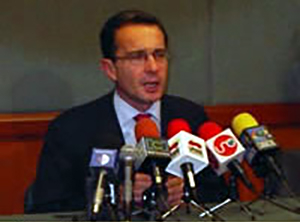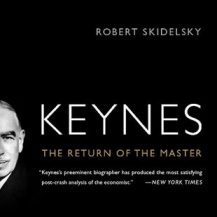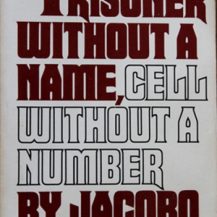Uribe Administration Impeding Foreign Press
The new president moves to limit any potentially damaging reports appearing in the foreign press.
This text originally published: 25 November 2002

Since coming to power in August this year, Colombian President Alvaro Uribe has shown a willingness to flout the conventions that hindered his predecessors. He has discussed modifying Colombia’s bicameral Congress to a single chamber, thereby drastically reducing the number of elected representatives. He has begun creating a nationwide network of paid civilian informants, and has sought to arm civilian brigades in guerrilla-controlled areas (thus creating new paramilitaries). He has ignored human rights and environmental concerns about the aerial fumigation campaigns that are a key element of the misguided drug war. He has established de facto martial law in two sections of the country. And, as ever unconcerned with his critics or the Colombian Constitution, Alvaro Uribe has now added tighter media controls to his authoritarian playbook.
On September 10, one month after coming to office, President Uribe issued a presidential decree creating two so-called Rehabilitation and Consolidation Zones. These areas, located in northern and northeastern Colombia, are now governed by appointed military commanders rather than by the elected, civilian administrations. Within the zones, the armed forces have a wide array of extrajudicial powers, including the right to impose curfews, set up phone-taps, monitor and restrict civilian movement, and arrest or search civilians and their property without warrants. According to Defense Minister Martha Lucia Ramirez, “The goal is to achieve greater control over citizens and, consequently, avoid infiltration by armed groups—[which] have been staging tremendous acts of terror.”
Apparently, one of the infiltrating groups Minister Ramirez is referring to is the foreign press. Among the measures included in Uribe’s September 10 decree was a new rule requiring all foreigners planning to enter the rehabilitation zones to obtain official permission up to eight days in advance from the Interior Ministry. For over a month, Uribe’s administration would not clarify the details of the new policy, particularly with reference to members of the press. A September 16 statement from the government promised that foreign journalists would be entitled to special passes providing for permanent or multi-month access to the rehabilitation zones.
But on October 24, despite heated opposition from the international press and media groups, the Colombian government rolled back the September 16 promise in favor of stricter controls on foreign journalists, who could now only receive permits to visit the zones for short periods or one-off assignments. In addition, Colombian journalists employed by foreign press organizations would also have to apply for official permission to enter the zones—a clause not included in Uribe’s original September 10 decree.
As it stands now, foreign journalists and Colombian journalists employed by foreigners must fax a request letter to the Interior Ministry stating their employer and providing an itinerary of where they plan to visit and when. Once the information is received, the Interior Ministry will inform regional authorities about the journalist’s intentions. In part, authorization will come down to the military situation in the specific areas a journalist wants to visit. Without a permit, any foreigner caught inside the rehabilitation zones faces deportation.
Foreign journalists have criticized the new rules. The International Press Alliance, a loose grouping of foreign correspondents from mainstream newspapers and wire services, objected to the new policy on the basis that the lag time caused by waiting for a permit to be issued would severely hamper their efforts to cover breaking stories in the rehabilitation zones. The Paris-based media group Reporters Without Borders pointed out that the travel restrictions are a direct violation of the 13th Article of the Inter-American Human Rights Convention, which safeguards the right of free movement for journalists. The Miami-based Inter-American Press Association was also quick to criticize the measures, arguing that the restrictions on press freedom and movement were eerily reminiscent of the dark years of military dictatorship prevalent in so many Latin American countries.
Colombian government spokesman, Ricardo Galán, attempted to justify the new restrictions: “There was worry within the government that some foreigners could come here to train the armed groups. We want to have the certainty that those who say they’re journalists are really journalists.” While Galán was no doubt referring at least in part to the three men detained in Colombia in 2001 on suspicion of being Irish Republican Army advisors to the Revolutionary Armed Forces of Colombia (FARC), his statement oversimplifies the issue at hand. Galán claims the new permits will prevent outsiders up to no good from contacting the armed groups within the zones, which the restrictions may well do, but he slyly neglects to mention that the restrictions may also prevent independent, outside observers from reporting on conditions inside the militarized rehabilitation zones.
Unfortunately, the new measures will do much more than simply hamper the mobility of foreign journalists. The permit requirement places journalists and the people they speak with in compromising positions. Despite reassurances from government spokesmen like Galán that journalists are not going to be required to divulge whom they are planning to meet with in the rehabilitation zones, it is clear that the authorities will be able to determine such information through other means. With foreknowledge of journalists’ destinations, the state authorities can even more effectively utilize their network of paid civilian informants, thereby ascertaining just who met with whom, and where, when, and perhaps even what was said. This policy in effect forces journalists to violate one of their basic tenets, the guarantee of confidentiality of sources. Of course, it remains to be seen whether residents in the rehabilitation zones—who live day after day in a tense atmosphere of invasive military and police presence, curbed civil liberties, and Uribe’s neighborhood spy rings—will even have anything to say to foreign journalists at this point.
It certainly seems that the intent of the government’s new measures is to stifle the reporting of what is happening in the rehabilitation zones on a daily basis. The new measures are essentially a filtering mechanism that the Colombian government can use to control the reporting in the zones, allowing it extraordinary powers to limit any potentially damaging reports appearing in the foreign press. For instance, journalists whose reports have caused them to fall out of favor with Uribe and his militaristic strategies could be denied permits, or they could be turned away simply on the basis of their media organizations lacking some “acceptable” form of accreditation. This is especially the case for small, independent media outlets and freelance journalists, who often don’t have the weight of an Associated Press or a New York Times behind them, yet who continue to contribute in vital ways to the public’s understanding and knowledge of the goings-on in Colombia.
Similarly, Uribe’s administration now has the means to carefully “spin” the stories that come out of the zones. For example, with the advance warning that regional authorities will receive about impending visits from the press, it is not difficult to imagine a scenario where state-sponsored human rights abusers “take the day off,” or where ample time is allotted by “permit processing delays” for evidence of crimes to be tampered with or rearranged for political effect (like the practice of dressing massacred civilians in guerrilla fatigues). Furthermore, considering the strong but oft-denied ties between the Colombian military and the paramilitary United Self-Defense Forces of Colombia (AUC), it seems likely that objective reporting of massacres and other abuses committed by the paramilitaries—often with military collusion—will also be more and more difficult to come by as a result of the new press control measures.
If Uribe and the generals choose to use the media-filtering tool they have created for themselves, Colombia’s domestic journalists will be the world’s primary link to the conditions on the ground in the rehabilitation zones. But this is a terrible burden to place on the shoulders of the men and women of Colombia’s press, who already work in one of the most hostile of climates for their profession. According to a report by the Inter-American Press Association, in Colombia in the six months prior to October 2002, four journalists were assassinated for clear political reasons, another two were killed for reasons not yet known, 48 journalists were threatened, 11 were kidnapped or “detained” for between 24 hours and 8 days, and 10 journalists were forced into exile.
Given the willingness of all Colombia’s armed actors to target domestic journalists, and the historic reluctance of these same actors to harm foreign journalists, it is clear that the foreign press has an important role to play in Colombia, a role the Colombian government now seems determined to downplay. Ironically, days before the restrictions on the foreign press were announced, Reporters Without Borders released its first-ever ranking of global press freedom. In the report, Colombia placed 114th out of 139 countries surveyed, a low ranking that undoubtedly would have been lower had the new restrictions on foreign journalists been factored into the judging.
It remains to be seen whether the Uribe administration will use the newly created powers to restrict media access to areas where unsavory activities are being performed by the military or its paramilitary colleagues. Likewise, there is no evidence thus far to suggest that the Colombian government will block certain sectors of the foreign media while allowing others a relatively free hand in the rehabilitation zones. But without a doubt, these options now exist. Indeed, when viewed in the context of the extremely heightened security state and the parallel retraction of civil liberties in the rehabilitation zones, the new restrictions on the foreign press are an ominous harbinger of further official impunity, perhaps on scales not yet seen in Colombia’s long, ugly conflict.
Notes
Image: Alvaro Uribe at a press conference (Official photo)
This article originally appeared in Colombia Journal, an online journal that was published by the Information Network of the Americas (INOTA).


